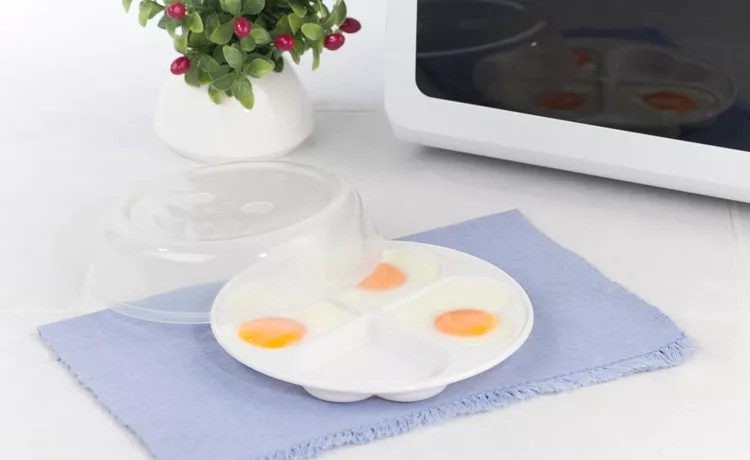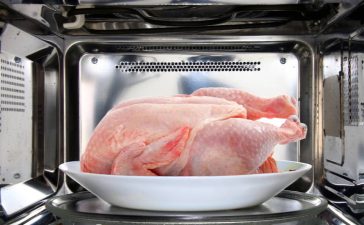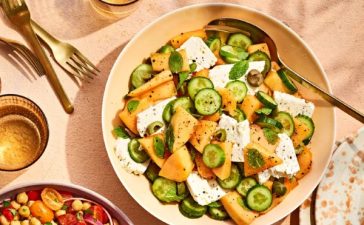Eggs are an incredibly versatile ingredient found in most refrigerators, and they are easy to cook and enjoy! They are packed with protein, iron, vitamins, and minerals, making them a nutritious choice for any meal or snack. The best part is that you don’t always need a stove, oven, or Instant Pot to cook eggs. Can you use the microwave to cook eggs? Absolutely! Eggs can be cooked perfectly in the microwave, allowing you to prepare them in batches or even freeze them for later use. Plus, you’ll have very few dishes to clean up afterwards. These tips have been tried and tested, so you can confidently enjoy your eggs without wasting a precious yolk, especially considering the current price of eggs.
Poach An Egg in the Microwave
Poaching an egg in the microwave is a quick and convenient method. Simply add water to a small bowl or mug, then crack an egg directly into the water. Microwave for 60 seconds and check for solidified whites. If needed, microwave for an additional 30 seconds. Drain the egg and serve.
To make scrambled eggs in the microwave, crack 2-3 eggs into a microwave-safe bowl. Add a splash of milk or cream, salt, and pepper. Whisk until blended, and optionally add shredded cheese or quick-cooking veggies. Microwave for 30 seconds, stir with a fork, and microwave in 30-second intervals until desired consistency is reached.
Prepare Hard-Boiled Eggs in the Air Fryer
Instead of using the microwave for hard-boiled eggs, the air fryer provides a low-effort method. Place eggs in a single layer in the air fryer basket and cook at 250 degrees Fahrenheit for 15 minutes. Rinse with cold water, peel, and serve or refrigerate for up to five days.
For easier egg separation, use chilled eggs from the fridge or briefly freeze them for 10 minutes before separating. The firmer texture makes it easier to separate yolks from whites.
Cook Sunny-Side-Up Eggs in a Sheet Pan
Cooking sunny-side-up eggs on a sheet pan is a great hack for serving a crowd or meal prepping. The eggs cook with runny yolks while you can attend to other tasks. Try recipes like Roasted Potato and Egg Sheet Pan Brunch or Sunny-Side-Up Sheet Pan Breakfast with prosciutto and spinach for a delicious breakfast.
Freeze Fresh Eggs
Freezing fresh eggs is a convenient way to have them on hand. Crack the eggs into a silicone ice cube tray, cover with plastic wrap, and place in the freezer. When ready to use, transfer the container or individual egg cubes to the fridge to defrost overnight. Avoid freezing eggs in their shells to prevent breakage.
Bake Eggs in a Muffin Tin
For easy meal prepping, bake eggs in a muffin tin. Preheat the oven to 350 degrees Fahrenheit and prepare the muffin tin with non-stick spray or butter. Crack an egg into each cup and bake for 15-20 minutes until desired consistency is reached. Store the cooked eggs in an airtight container for up to five days or enjoy them immediately.
Use An Egg Timer For Perfect Boiled Eggs
To ensure perfectly boiled eggs, use an egg timer. Set the timer on your oven or microwave to the desired cooking time or ask voice assistants like Siri, Alexa, or Google to set the timer for you. Prepare an ice bath to cool the eggs after cooking. With a timer to remind you, you can avoid overcooking the eggs and keep track of precise cooking times.
Stir Eggs Into Soup
Add eggs to soups to enhance texture and nutrition. Whisk eggs in a small bowl until scrambled. Bring the broth to a simmer and gently stir while slowly adding the scrambled eggs. The eggs will set in about a minute, adding delicious strands to the soup. This technique is used in dishes like Chinese egg drop soup and Italian stracciatella soup.






